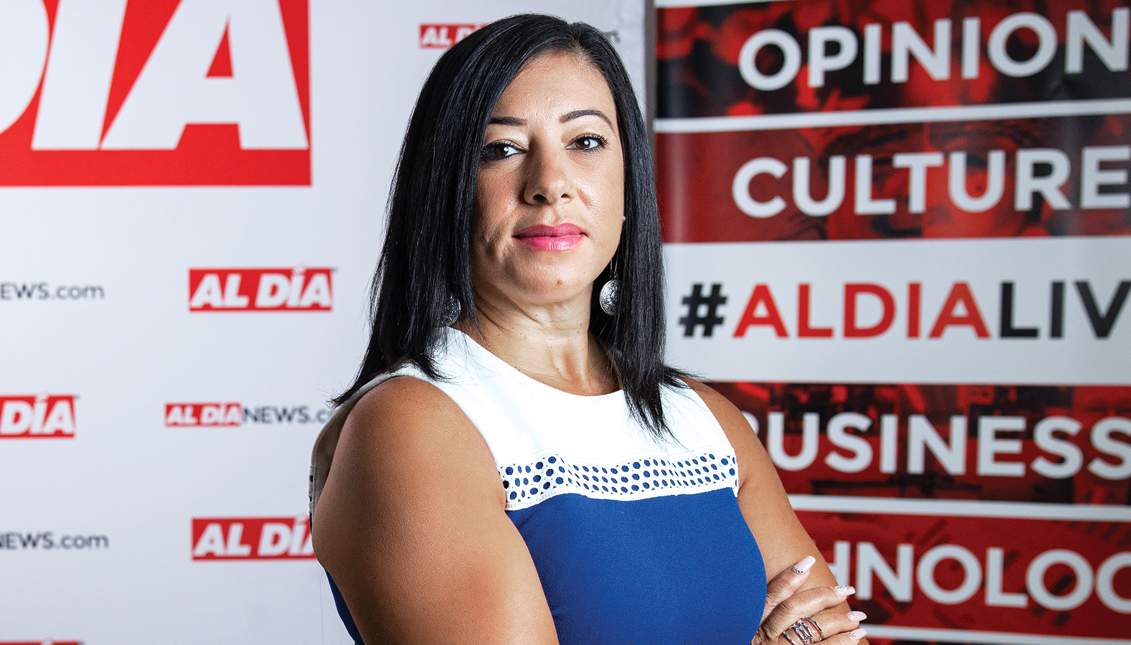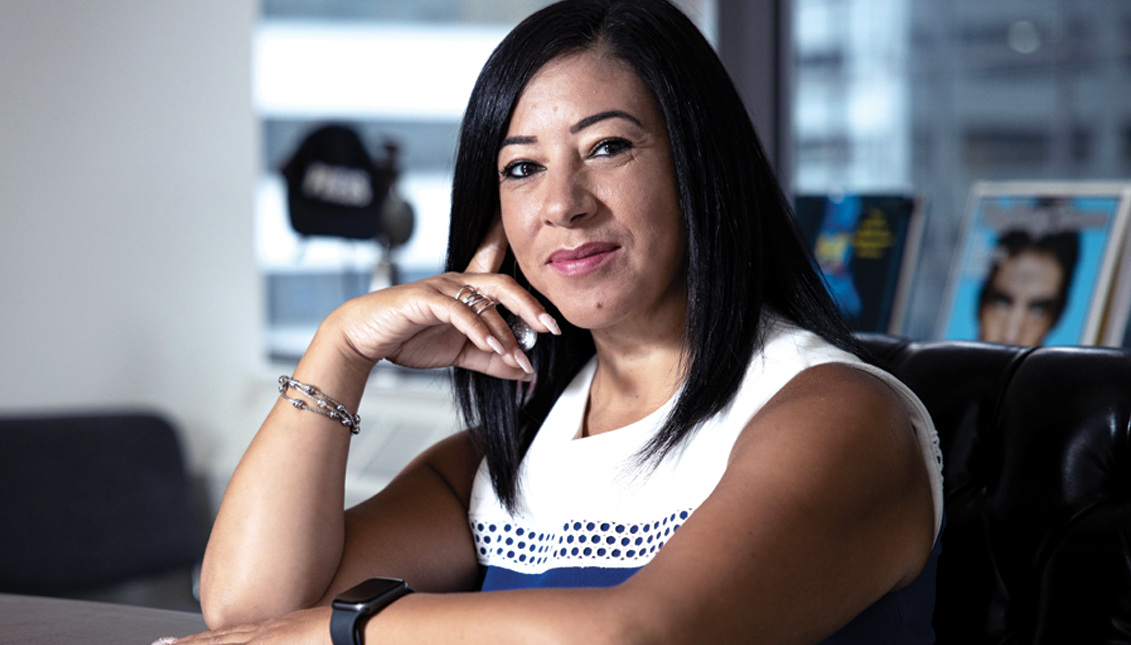
Dr. Evelyn Nuñez: The leader Philly needs for its students
The new chief of schools in Philadelphia is AL DÍA’s Education archetype for its 2020 Hispanic Heritage Awards.
Dr. Evelyn Nuñez has only been the Chief of Schools at the School District of Philadelphia for six months, but she entered the position at quite possibly the most critical time the school district has ever faced.
The COVID-19 pandemic has tested her strengths and experience, but most of all, it has highlighted her resiliency. Not just of Dr. Nuñez, but within all of the School District’s staff, its students, and parents.
Born in Puerto Rico, Nuñez has lived in Philly since the age of three. She’s a product of the same school district she now leads, which came after years of study, becoming the first person in her family to attend college, earning her Doctorate in Educational Leadership, and a Superintendent certification.
In the face of the pandemic, she’s not letting it get in the way of her care for her students and staff, and her aspirations for the future.
“Whenever I have to make the toughest decisions, I think about the children,” Nuñez said. “I mean, I think of myself,” she continued, remembering how she was raised by parents who only went to the third and fourth grade.
“And the struggle, that you know, they were blue-collar employees. My mother cooked in a restaurant, and my dad was a landscaper. But they had amazing work ethics and were extremely responsible. And I knew, just being raised in North Philadelphia, the struggles that any inner-city student goes through,” she said.
Dr. Nuñez, being the product of the school district herself, can empathize with her students on a deep level, because she knows: “They’ve seen the good and not-so good.”
Now in the 27th year of her career, she has seen the impact she’s had on students she taught years ago.
“Now they’re adults, and they’ve reached out and said, ‘I remember when you were in the first grade, and this happened to me, and this is how you responded,’” said Nuñez. “Little did I know that today, part of their success would trace back to when I taught them, to when they were just five or six years old.”
She even thinks of past students who aren’t in the best places and is tortured by the thought that, perhaps, she could have done something differently.
Of course, it’s not as simple as that. Still, the deep empathy combined with the professionalism she displays signals one thing: The students’ futures are at the forefront of Nuñez’s mind, even with a new position, and especially through a pandemic.
The transition from teacher to administration, Nuñez says, was “interesting.”
“When I went into education, I never thought I’d become an educational leader. I went in, again, loving the work with children, and the first principal I worked for, she immediately said, ‘someday you’re going to be a great leader,’ and I didn’t believe her,” she said.
“But she saw the leadership capacity in me.” Nuñez continued.
She quickly moved on to become a teacher coach, further her education, become a principal, and an assistant superintendent. It all comes down to the belief that people like that first principal had in her.
“In a classroom, you impact 30 children, right? As a teacher coach, the impact is indirect, but I got to see some great leaders, some leaders who had room to grow, and wanted the opportunity to impact hundreds of kids,” Nuñez said.
And so she did.
“The transition was hard, it was rewarding; it was difficult because a part of being a leader is inspiring other people to believe in your vision,” said Nuñez. “And that work wasn’t easy, but it’s not impossible.”
However, nothing could have prepared Nuñez for an event as specific as a global pandemic, but she’s navigating a path forward to this day.
“There isn’t a manual,” Nuñez pointed-out, saying that administrators can learn a little from Puerto Rico’s response to Hurricane Maria or New Orleans’ to Hurricane Katrina.
“But this is very different. This is life or death, right? And you have to think about that. At the same time, you have to think about the children that need us,” she said.
Here, Nuñez raises the issue that has been at the heart of schools returning to school across the nation. Sure, for many families staying at home is easy. But for others, schools are the center of a community.
“The truth of the matter is that here in Philadelphia, we have thousands of children that — school is where they eat. We feed them, we’re that form of stability, for a variety of reasons,” she said. “That’s what makes it sometimes a little difficult, because the decisions that we make have an impact on so many lives — the children, the teachers, the principals, our central office staff.”
Running parallel to the resources schools provide for Philadelphia students is also the question of their safety when returning to those resource hubs.
Nuñez emphasized trust as the way to navigate. Even though the district is currently virtual, the time will eventually come when studies will transition in-person. That sense of trust must be intact to move forward.

To maintain and build on the trust with parents, Nuñez said the school district is doing everything in its power to make at-home learning as accessible as possible.
She said students have struggled with virtual learning, whether it be access to a computer, wifi, or another situation entirely.
“So we’re providing one computer per child. Not per household, for every single child we’re providing a computer,” she explained, recounting the tremendous effort that goes into giving out 200-400 computers a day as part of a program that has been going on all summer.
RELATED CONTENT
Out of 130,000 students, she says the district has already distributed over 90,000 computers, even offering repair services and wifi access.
Increasing outreach, she said, is at the heart of making sure her students can continue their education.
“This is the sixth month in this position, and I feel extremely humbled that I'm able to add another layer of outreach to the community,” she said.
As a Puerto Rican Latina, Nuñez can bridge even more gaps between the administration and the Spanish speaking community.
“I’m excited that this is the community that raised me, and I’m able to serve it in this capacity,” she said.
Nuñez is incredibly proud of the range of translation services available to families at this time, and not exclusively for Spanish speakers.
“There are tons of languages that we serve,” she said. “Philadelphia is an extremely diverse community.”
With the rigors of a new position, a nationwide crisis, and resuming virtual classes, Nuñez is thankful to have a support system around her.
“I’ve had the pleasure, during this time, to have brought my parents home with me,” she said, noting that once the pandemic started, she insisted they move to keep them close.
“At the end of the day, that’s what keeps me sane, having them close to me, being able to provide for my parents now, just as they provided for me. The honor of that, making sure they’re safe,” said Nuñez
Her daughter, too, is studying at home virtually, bringing her peace of mind.
“Y un poquito de salsa, merengue, y bachata al final del día! At the end of the day that always adds joy,” said Nuñez.
When asked about her future plans, Nuñez responded emphatically, “I am here.”
“You know, my entire career, I always thought five years ahead, you know? In five years, this is where I want to be [and so on],” she said.
The next logical step would be to become a school district superintendent, but she isn’t so sure.
“I had never imagined to be the Chief of Schools for the School district of Philadelphia. I always was inspired by impacting more children, right? But I never imagined that I'd be in a position where the decisions that I make, or don’t make, have an impact on 130,000 children,” Nuñez said.
“And the beauty of it is that it is in the city that raised me, or helped raise me,” she continued.
“I’m living where I’m above and beyond where I ever thought I’d be, and I’m going to enjoy it. So I’m looking forward to going back to normalcy. I’m looking forward to going back to a school full of children, sitting down on a carpet, and saying to them, you know, I was just like you.”











LEAVE A COMMENT: